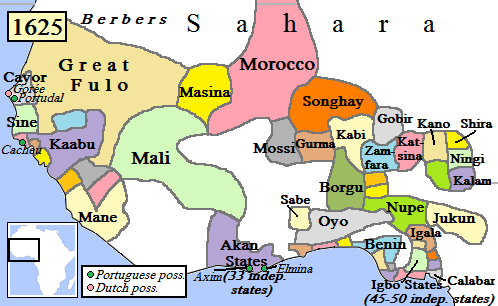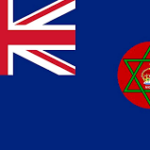The pre-colonial period of Nigeria is characterized by the development and flourishing of various indigenous cultures, kingdoms, and empires. These entities had complex social, political, and economic systems that significantly influenced the region’s history. Here is an in-depth look at this period:
Early Civilizations and Cultures
Nok Culture (c. 1000 BCE – 300 CE)
- Location: Central Nigeria, particularly the Jos Plateau.
- Significance: One of the earliest known civilizations in Nigeria, famous for its terracotta sculptures.
- Achievements: Advanced iron-smelting technology, artistic development in terracotta, and early agricultural practices.
Major Kingdoms and Empires
Kanem-Bornu Empire (c. 700 – 1893)
- Location: Northeastern Nigeria, Chad, and parts of Niger and Cameroon.
- Origins: Founded by the Kanuri people, initially as the Kanem Empire before evolving into the Kanem-Bornu Empire.
- Political Structure: Monarchical system with a powerful king (Mai) and a feudal hierarchy.
- Economy: Based on trans-Saharan trade, especially in salt, horses, and slaves.
- Religion: Islam became prominent from the 11th century onwards, deeply influencing the culture and administration.
Hausa City-States (c. 1000 – 1804)
- Location: Northern Nigeria.
- City-States: Included Kano, Katsina, Zaria, Gobir, and others.
- Political Structure: Independent city-states each ruled by a king (Sarki) with a council of nobles.
- Economy: Thrived on trade in leather, textiles, grain, and metal goods.
- Culture: Rich in oral traditions, arts, and Islamic scholarship.
Oyo Empire (c. 1300 – 1895)
- Location: Southwestern Nigeria.
- Origins: Founded by the Yoruba people.
- Political Structure: Monarchical system with the Alaafin of Oyo as the ruler, supported by a council of chiefs (Oyo Mesi).
- Military: Strong cavalry forces that expanded the empire’s influence.
- Economy: Based on agriculture, trade, and tribute from conquered states.
- Religion: Indigenous Yoruba religion, with a pantheon of deities (Orishas).
Benin Kingdom (c. 1180 – 1897)
- Location: Southern Nigeria.
- Origins: Founded by the Edo people.
- Political Structure: Centralized monarchy with the Oba of Benin as the divine ruler.
- Economy: Based on trade in ivory, pepper, and slaves with Europeans.
- Culture: Known for its sophisticated art, particularly bronze and ivory sculptures.
Ife Kingdom (c. 1100 – 1400)
- Location: Southwestern Nigeria.
- Origins: Also a Yoruba state, considered the cradle of Yoruba civilization.
- Significance: Revered as the spiritual and cultural center of the Yoruba people.
- Achievements: Renowned for its naturalistic bronze and terracotta sculptures.
Smaller States and Societies
Igbo Societies
- Location: Southeastern Nigeria.
- Political Structure: Organized into autonomous, republican communities with decentralized leadership.
- Economy: Based on agriculture, trade, and artisan crafts.
- Culture: Rich traditions in arts, crafts, and oral literature.
Nupe Kingdom
- Location: Central Nigeria.
- Political Structure: Monarchical system with a king (Etsu).
- Economy: Based on farming, fishing, and trade.
Trade Networks and Economic Systems
- Trans-Saharan Trade: Linked northern Nigeria to North Africa and the Mediterranean, facilitating the exchange of goods, culture, and religion (Islam).
- Regional Trade: Flourished among the various Nigerian kingdoms and societies, exchanging goods like kola nuts, textiles, metals, and agricultural products.
Cultural and Religious Developments
- Indigenous Religions: Each ethnic group had its own belief systems, rituals, and deities.
- Islam: Spread into northern Nigeria from the 11th century, profoundly influencing Hausa and Kanem-Bornu societies.
- Christianity: Had minimal presence during the pre-colonial period, only becoming significant during the colonial era.
Summary
The pre-colonial period of Nigeria was marked by diverse and advanced civilizations with rich cultural heritages, complex political systems, and vibrant economies. These societies laid the foundational structures that influenced Nigeria’s subsequent historical developments.


